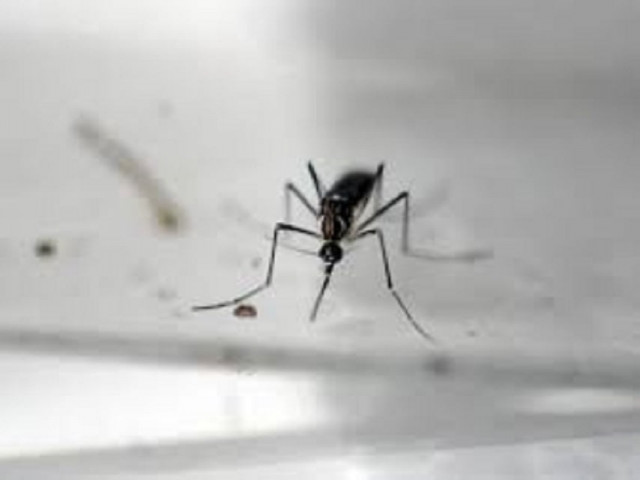K-P out to prevent spread of dengue
Some 70 people died and over 24,000 people tested positive in 2017

Khyber Pakhtunkhwa (K-P) government faced the worst dengue virus outbreak last year.
PHOTO: FILE
Some 70 people died and over 24,000 people tested positive for carrying the virus between July and October 2017. The government promptly responded to the outbreak however interdepartmental strategy has been advised to overcome the situation, prevent another outbreak in next few months.
The government although did not publicly point out the reason for the outbreak but the fact of the matter is the reason behind the massive outbreak was because the local government failed to release funds to counter vector borne diseases.
“We won’t go into details but what we need now is a collective approach since the health department, alone, cannot deal with it,” a health official informed adding ‘with the new strategy being adopted, any department, which is supposed to respond, will be held responsible if the fail to do so’
The official, who refused to disclose his identity as he was not authorised to speak to the media explained that over 70 per cent of the diseases were water-borne and the government could hold public health engineering department responsible. “We know public health engineering lacks the capacity and this is why we stress on collective approach,” he said.
“Suppose if you spend Rs100 on control of diarrhoea, why don’t you spend Rs100 on clean drinking water, a full time safety against diarrhoea,” the official gave an example suggesting to invest in prevention rather cure.
Since water-borne diseases have been challenging the government, recently, during a meeting held in the provincial capital, officials from the health department revealed the major breeding spots for dengue vector was identified as ‘water storage barrels’ locally called as ‘Chattae’, [local made mud jars placed uncovered in open air].
“Local government and public health engineering department are requested to ensure continuous water supply in the provincial capital and other high risk districts to avoid water storage practice which may lead to breeding of Aedes mosquito responsible for spread of dengue fever, chickenguniya, yellow fever and Zika virus,” a senior health official was quoted as saying during the meeting.
The meeting appreciated the role the education department in dengue prevention and control activities in 2017 however stressed upon repeating the same efforts as schoolchildren could act as agents of change in adopting preventive steps against dengue virus.
Officials who were privy to the meeting stated Expanded Program on Immunisation was recruiting surveillance officers who could be used as workforce for implementation of Khyber Pakhtunkhwa Public Health (Surveillance and Response) Act 2017.
The meeting decided to establish District Disease Surveillance Center across K-P to be chaired by concerned deputy commissioner, reporting mechanism for the center should be streamlined where at the same time all line departments were assigned to submit a detailed work plan on the basis of roles and responsibilities and share with health department.
Finance department was asked to allocate additional funds for any public health emergency including dengue virus.
Published in The Express Tribune, January 30th, 2018.



















COMMENTS
Comments are moderated and generally will be posted if they are on-topic and not abusive.
For more information, please see our Comments FAQ